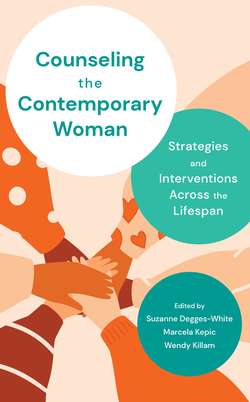Читать книгу Counseling the Contemporary Woman - Suzanne Degges-White - Страница 80
На сайте Литреса книга снята с продажи.
Sexual Identity
ОглавлениеGender identity and sexual identity are only two of many identity domains that are still being developed and crystallized during emerging adulthood. Sexual identity intersects with other domains as well, such as racial, ethnic, or religious identities. Sexual identity has been conceptualized as comprising emotional and cognitive understanding that individuals have about the meaning and significance of numerous aspects of their sexuality, such as their sexual attraction, desires, behaviors, values, and relationships (Horowitz & Newcomb, 2001). This understanding is being organized throughout adolescence into emerging adulthood, helping to create a meaningful sense of one’s sexuality.
Over the past several decades, researchers have been proposing various models of sexual identity development, and most of them resemble a linear progression through stages, starting first with awareness of same-sex attraction, questioning and exploring such attractions, and eventually moving through acceptance, disclosure, and integration of identity (Cass, 1979; Fassinger & Miller, 1996; Meyer & Schwitzer, 1999; Minton & McDonald, 1984). Such models with linear progressions have been critiqued for failing to acknowledge the diversity of the coming-out process (Horowitz & Newcomb, 2001; Kitzinger & Wilkinson, 1995). Other models of sexual identity development attest to diversity of experiences, suggesting that there are multiple trajectories of sexual identity development for lesbian, gay, and bisexual individuals (Fassinger & Miller, 1996; Meyer & Schwitzer, 1999; Morris, 1997).
Simon, Vazquez, Bruun, and Far (2019) found that when it comes to sexual identity, women have greater latitude in deviating from the expected traditional norms and that societal structure is in place to prevent excessive deviation. They found no difference in the degree of exclusion experienced by sexual minority emerging adults based on gender. The challenge for these individuals is dealing with continued stereotypes and expectation in a society that tends to punish those who are different (Simon, Vazquez, Bruuns, & Farr, 2019). This is supported by research conducted by Luk et al. (2018) that found that sexual minority emerging adult females were less likely to enroll in college or complete college. This was due in part to the lack of social support, as indicated by potentially higher rates of bullying in high school (Luk et al., 2018). These negative experiences may impact the choices that a person makes and highlights the importance of relationships in life.
